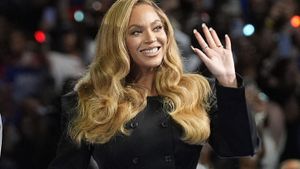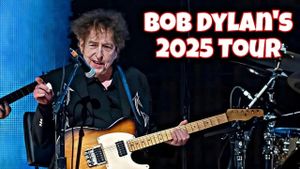Robert F. Kennedy Jr. faced fierce scrutiny during his nomination hearing for the position of Secretary of Health and Human Services, where he was grilled about his long-standing views on vaccines and public health policy. The hearing, marked by moments of dramatic tension, revealed deep divides within the American political and medical communities.
Democratic senators on the committee expressed their concerns over Kennedy's history of anti-vaccine activism, culminating in several intense exchanges. Notable figures such as Senators Bernie Sanders and Elizabeth Warren did not shy away from attacking Kennedy's credibility, emphasizing the risks his views pose to public health. Sanders, who has received significant funding from the pharmaceutical industry, argued passionately against Kennedy's claims, stating, "Almost all the members of this panel are accepting millions of dollars from the pharmaceutical industry.”
Yet the dialogue went beyond mere political banter. It delved deep, with Kennedy accused of propaganding measles misinformation. His critics pointed to 83 deaths attributed to measles during the 2019 outbreak in Samoa, which Kennedy controversially claimed were not linked to the disease but rather to vaccine injuries. Dr. Alec Ekeroma, Samoa's health chief, firmly rejected Kennedy's assertions, labeling them as lies and reiterative of Kennedy's history of promoting fringe theories.
“I am absolutely horrified,” stated Sir Collin Tukuitonga, chair of the WHO's Strategic and Technical Advisory Group, adding, “that the person who is the most influential individual in the US health system could tell lies and keep a straight face.” These comments encapsulated the growing frustration among health experts as misinformation continues to spread, potentially jeopardizing immunization programs globally.
The scrutiny didn’t stop at the hearing, as various factions began to rally around the topic of vaccine safety and health accountability. Proponents of Kennedy argued fiercely for his nomination, submitting letters of support from many healthcare professionals. Yet scrutiny of this support revealed troubling ties, as many signers had licenses suspended for malpractice or were not even medical professionals.
Republican senator Bill Cassidy, noted for his vaccination drives, expressed hesitations about Kennedy’s nomination, hesitant to align with his controversial stances. Others voiced concerns about Kennedy's possible influence over health policy, particularly concerning chronic diseases which now plague the American population.
Meanwhile, the financial entanglements of politicians with the pharmaceutical industry have come under increasing scrutiny. With reports highlighting significant monetary contributions to various Democratic senators by pharmaceutical lobbyists, the committee's integrity was cast asunder. Kennedy's supporters pointed out this conflict of interest, arguing it undermines the credibility of the opposition.
Despite the fierce opposition he faced, Kennedy appealed to voters, particularly parents, expressing his commitment to addressing the pressing health issues faced by many Americans. He made bold claims about restructuring health policies to prioritize genuine nutritional standards and safety measures over corporate interests. "If confirmed, I will do everything to put the health of Americans back on track,” he confidently stated.
For many Americans, Kennedy's narrative resonates, tapping directly to widespread concerns about governmental trust and health safety. Many supporters expressed hope for change, as demonstrated by vocal crowds gathered outside the Senate hearing, advocating for Kennedy and his mission to reform healthcare standards.
“A healthy person has a thousand dreams. A sick person has only one,” Kennedy remarked poignantly during his opening statement, capturing the juxtaposition many feel as healthcare crises loom large across the nation.
Despite the overwhelming opposition, Kennedy's supporters are undeterred. The narrative crafted during the candidacy and through his hearing continues to confront the established norms within American healthcare and medical governance. The protests from medical authorities and politicians alike against his nomination signal broader issues concerning vaccine safety, public trust, and the influence of Big Pharma on health policy.
Looking beyond the ambitious claims, there is rising skepticism about how these narratives intersect with reality. Many healthcare professionals rallying against Kennedy’s perspective cite the well-documented benefits of vaccinations, claiming any deviation could undo decades of progress against vaccine-preventable diseases.
What remains clear is the division this nomination hearing has highlighted: the ever-present battle between public health advocacy rooted in scientific consensus versus fringe theories increasingly gaining traction among certain populaces. With political lines drawn and intense advocacy from both sides, the future of health policy under potential Kennedy leadership looks to be fraught with complexity and contention.
With the Senate's decision looming, the ramifications of this hearing will ripple far beyond just one appointment. It encapsulates the very heart of the debate on healthcare and public trust, forming the stage for what may be one of the most controversial health policy discussions of the decade.



